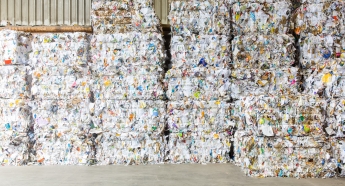The packaging that we collect via the PMD bag is currently recycled either in Belgium or in our neighbouring countries. For plastic packaging, the proportion recycled in Belgium was still relatively limited. With the New Blue Bag, we are changing that. Whereas in 2021, around 12% of the plastic packaging was recycled in Belgium, the planned projects should increase this figure to over 75% in the next few years.
Recycling close to home has a number of advantages. Less transport is needed for the materials collected, so we avoid a lot of CO2 emissions. It also makes a great contribution to local employment and the local economy, as well as providing high-quality recycled material for local companies. In addition, having the recycling centres close by makes it easier to work closely with recycling companies and respond promptly to new trends and innovations.
Fost Plus has launched a series of calls for projects for the recycling of specific packaging from the New Blue Bag. Various companies and consortia have already signed up for these and decided to invest in recycling lines and plants in Belgium.
In 2020, Ecoo in Houthalen-Helchteren invested in an extra recycling line for mixed plastics and mixed films. In June 2022, Ecoo Beringen opened an ultra-modern facility to recycle polyethylene film, with an annual capacity of 42,000 tonnes of packaging material. The recycled material is used to make new film and bags.
MOPET, a recycling plant in Neufchâteau built by the Dutch company Morssinkhof Rymoplast Group to process complex PET packaging, made an announcement at the beginning of 2022. By the end of 2024, it will be recycling 10,500 tonnes of PET trays and 17,500 tonnes of PET bottles per year, mainly to provide raw materials for new trays and bottles.
At the end of 2022, Filao in Charleroi started bottle-to-bottle recycling of PET bottles. This is a unique, fully circular project that involves recycling PET bottles collected from Belgian families to make raw materials for new bottles which in turn are intended for the Belgian market. This facility is the result of a cooperation between the waste processing company Veolia and Sources ALMA, the Belgian market leader in bottled water. Once it is fully operational, the plant will recycle 40,000 tonnes of PET per year.
Lastly, at the start of 2023 the contract was awarded for the fifth and final recycling centre being built by Morssinkhof Rymoplast in Lommel. The plant will be operational in October 2024 and among other things, will recycle polypropylene (PP) packaging (such as butter tubs and ready-meal trays) and polyethylene packaging (such as shampoo and milk bottles and flasks).

